Creating Address Labels by Scanning Business Cards
By scanning with the OCR (Text Searchable) function, you can convert business cards into text searchable PDF or XPS files. The Searchable PDF mode is useful in various situations. This section explains how to create address labels using the [Mail Merge] function of Microsoft Word 2003.
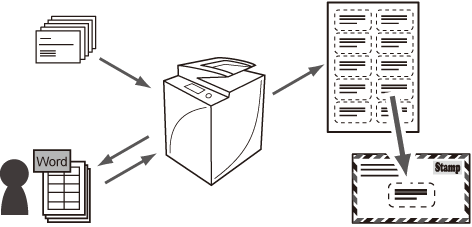
Benefits of the Searchable PDF, XPS, or OOXML mode
The searchable PDF, XPS, or OOXML mode enables you to perform OCR (optical character recognition) to extract data that can be recognized as text from the scanned image, and add it as a transparent layer of text to create a PDF, XPS, or OOXML file that is searchable. This mode enables you to search necessary information quickly from PDF, XPS, or OOXML files.
The scanned business cards can be stored in a desired location, from the Advanced Space of the another machine on the network, to memory media.
This section uses the procedure for storing the scanned data in memory media as an example.
The appearance of the screens may differ from the ones you actually see, depending on the model of the machine you are using and the optional products available for use.
|
Required Condition
|
|
Network settings are set.
The Universal Send Advanced Feature Set is activated.
|
|
IMPORTANT
|
|
Text may not be detected correctly, depending on the background colour, style and size of the characters in the image.
|
Follow the procedures below.
Converting and Storing a Business Card as a Searchable PDF File
Creating an Address Label by Copying Texts from a PDF File to Microsoft Word
Printing an Address Label from Microsoft Word
Converting and Storing a Business Card as a Searchable PDF File
1.
Press [Scan and Store] on the Main Menu screen.
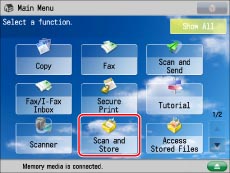
2.
Press [Memory Media].
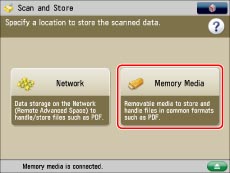
3.
Select the memory media.
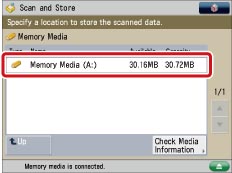
4.
Select the directory in which you want to store the scanned data.
5.
Place the business cards on the platen glass.
By mounting the business cards on a board, you can scan several cards at one time.
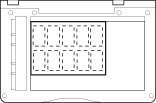
6.
Press [Scan].
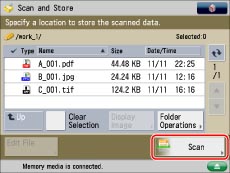
7.
Specify the desired scan settings.
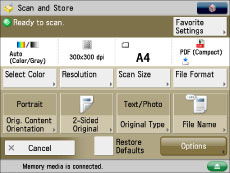
Press [Scan Size].
Select [A4] → press [OK].
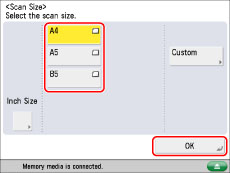
Press [File Name].
Enter a name for the scanned data → press [OK].
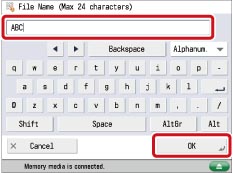
8.
Press [File Format].
9.
Select [PDF] → press [Set Details].
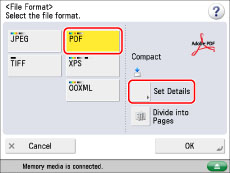
10.
Press [OCR (Text Searchable)] → [OK] → [OK].
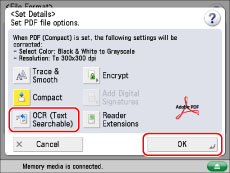
11.
Press  (Start).
(Start).
 (Start).
(Start).A searchable PDF file is stored in the memory media.
12.
Connect the memory media in which the searchable PDF is stored, to a computer.
This section uses Windows 7 as an example.
Click [Start] → [Computer] → select the memory media.
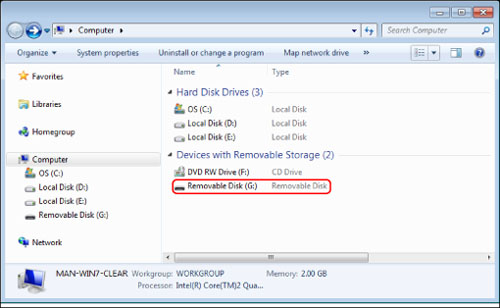
Open the directory where the searchable PDF file is stored.
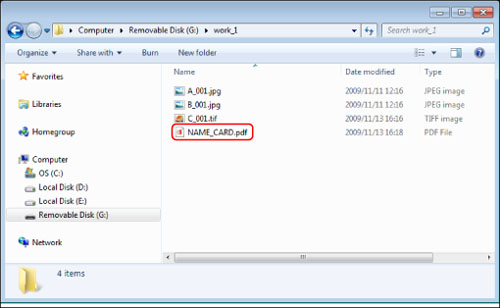
13.
Open the searchable PDF file.
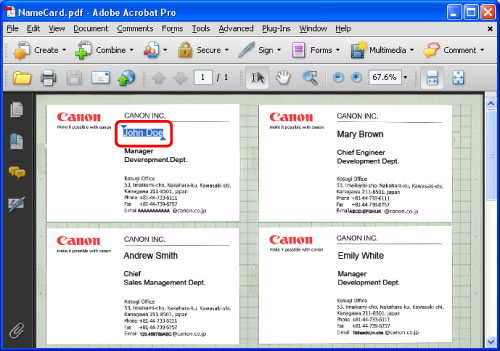
Confirm that text is selectable.
Creating an Address Label by Copying Texts from a PDF File to Microsoft Word
This section uses Microsoft Word 2003 as an example.
1.
Open a new Microsoft Word document → click [Tools] → [Letters and Mailings] → [Mail Merge].
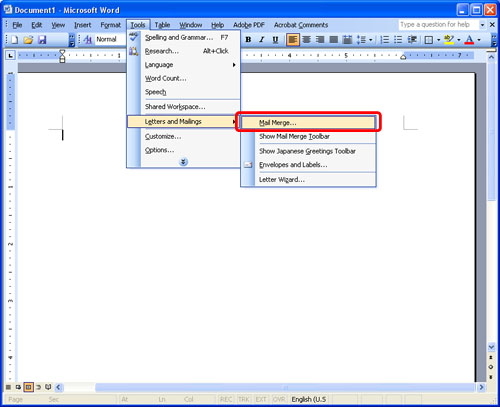
2.
Select [Labels] for [Select document type] → click [Next].
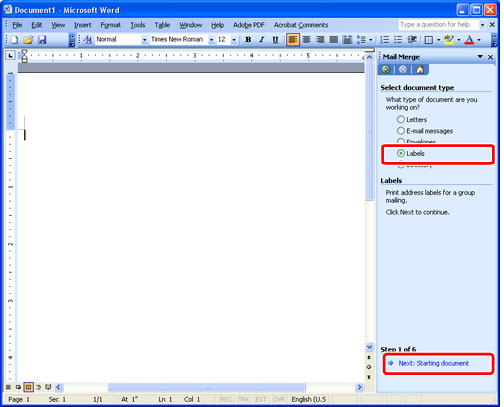
3.
Select [Change document layout] for [Select starting document] → click [Label options].
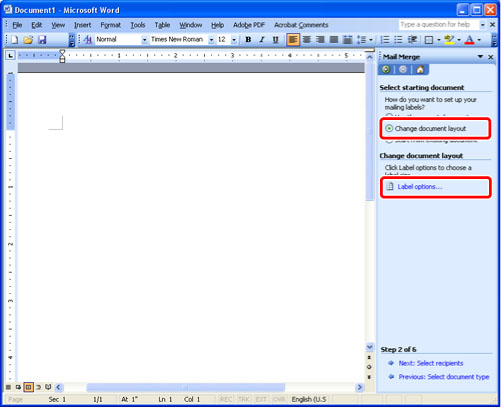
4.
Select the size of labels for [Label products] → click [OK] → [Next].
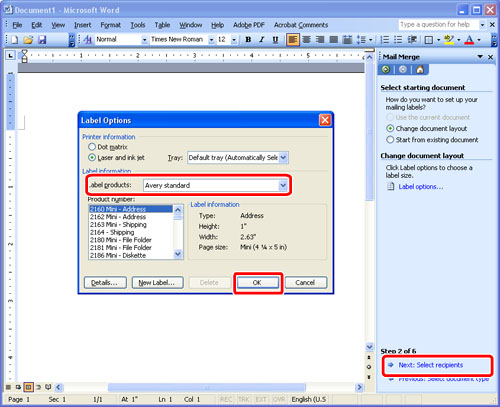
5.
Select [Type a new list] for [Select recipients] → click [Create].
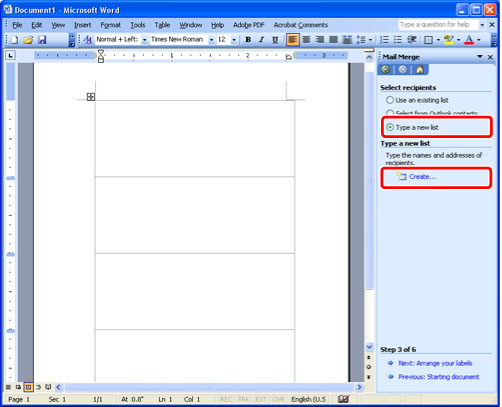
6.
Copy necessary texts from the searchable PDF file into the [New Address List] dialog box to create an address list.
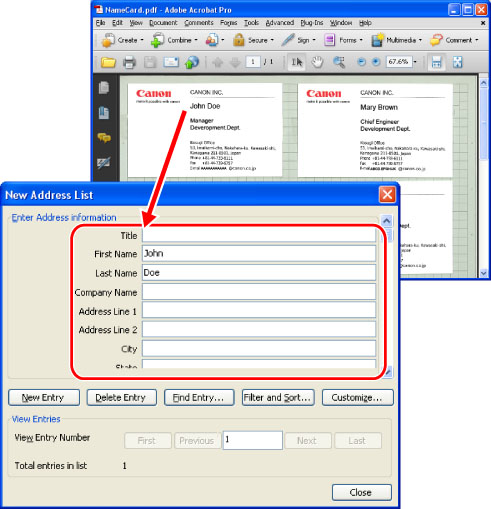
Confirm that small characters have been correctly detected.
After entering the information of one business card, click [New Entry] to proceed to the next card.
When you finish entering the information for all the business cards, click [Close].
7.
Enter a file name → click [Save].
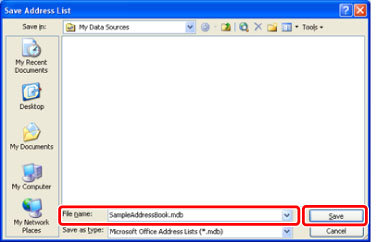
8.
Click [Select All] → [OK] → [Next].
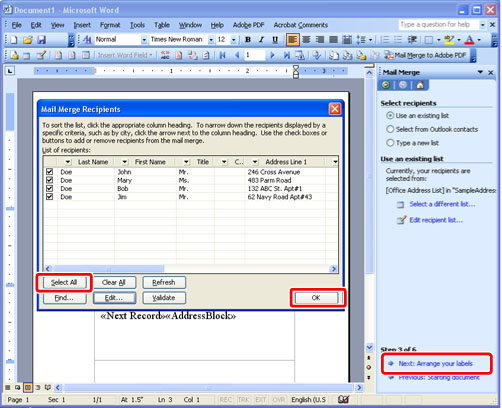
9.
Click [Address block] in [Arrange your labels].
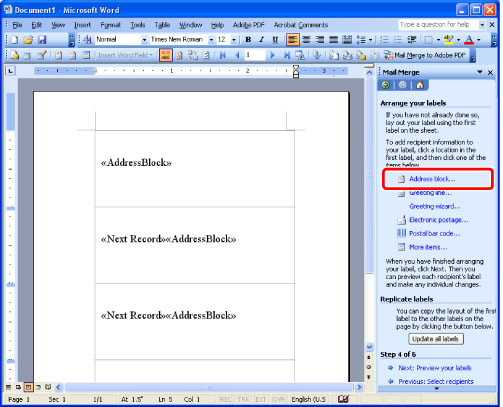
10.
Specify the layout of the label → click [OK] → [Next].
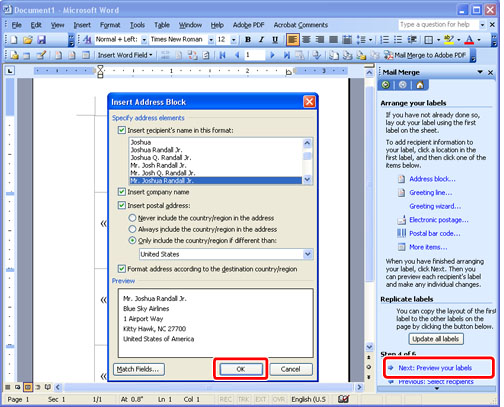
11.
Check the preview of the label, and click [Next] if the preview is adequate.
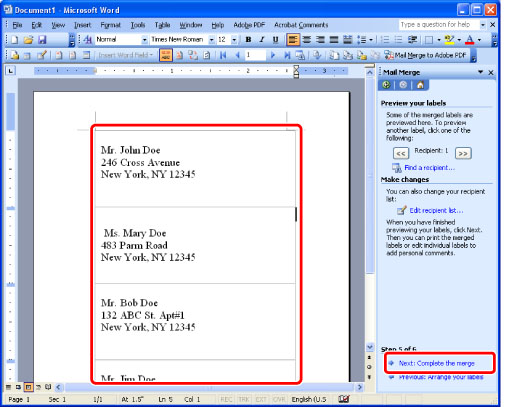
Printing an Address Label from Microsoft Word
1.
Click [Print] in [Complete the merge].
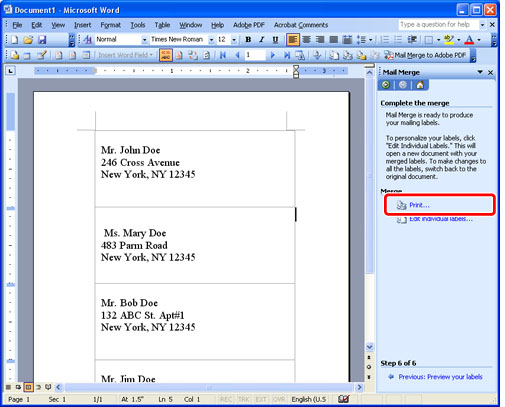
2.
Select [All] for [Print records] → click [OK].
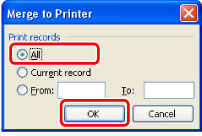
3.
Click [Properties].
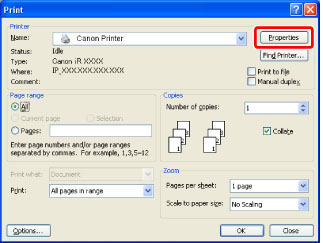
4.
Select [Print] for [Output Method].
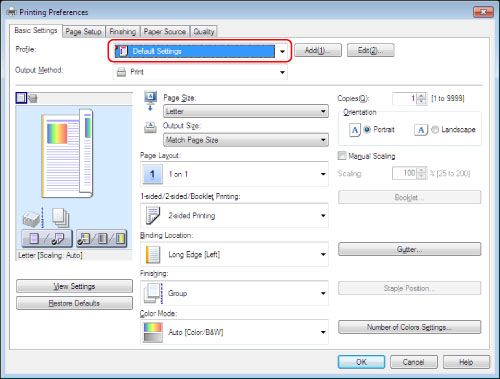
5.
Click the [Paper Source] tab → select the paper source that contains labels → click [OK].
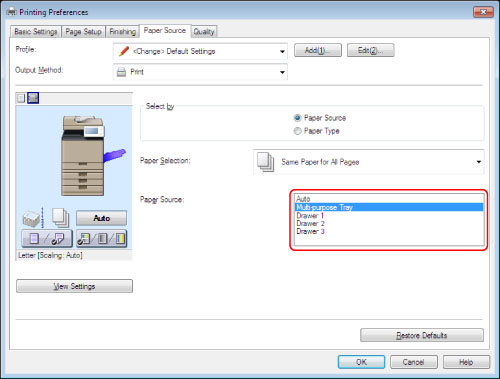
6.
Click [OK].
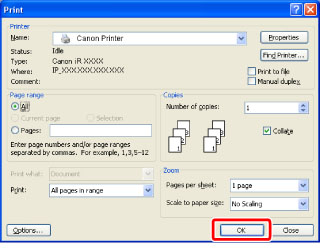
Address labels are output.
You can make use of the printed address labels, for example, on envelopes.